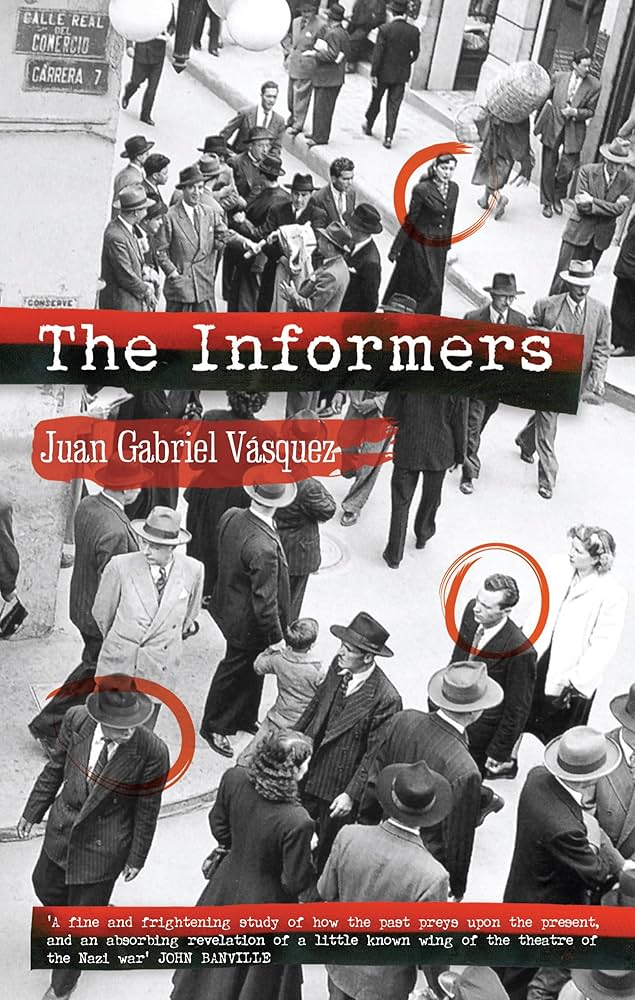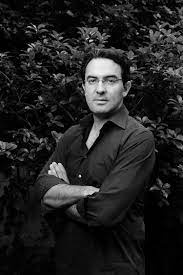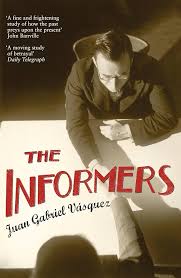The Informers (2004) by Juan Gabriel Vásquez
Good Reads meta-data is 333 pages, rated 3/39 by 246 litizens.
DNA: Colombia.
Genre: Novel.
Verdict: Meh.
Tagline: Everyone did it.

In 1990 Gabriel remembers with a lifelong family friend, Sara, a Jewish refugee, the death of his father Gabriel Senior In flashbacks we learn something of her flight from Germany in 1935 as a tweenager, and then Gabriel Senior’s troubled life during La Violencia of the 1950s in which 180,000 died when zealots on both sides thought murdering children was the best longterm strategy to defeat their opponents.
In the late 1930s there were resident Germans in Colombia, among them many enthusiastic Nazis, then came a small influx of refugees, mostly German Jews, and after the war a few more Germans, including fervent Nazis. During World War II many of the Germans, both residents and recent immigrants, were sequestered together – Jews, Nazis, and neither, usually in hotels or resorts and they lost many of their assets. Colombia had been quicker than many Latin American countries to join the Allies. (Some of the resident Germans ran or flew in local airlines and were perceived to be a threat to shipping in the Caribbean Sea and the Panama Canal, either a directly or as a source of intelligence, though that is not mentioned in this novel.) Colombia was also quick to join the United Nations in the Korean War.
Forced together this mix of Germans was volatile, but the novel makes little use of that obvious fact. But it does emphasise the mutual denunciations by informers. Instead the villains are the blacklists that were used to identify enemy aliens. The logic is convoluted to this reader
Yet somehow Gabriel Senior survived La Violencia, though maimed, and rose to eminence as a jurist and spawned a son, Junior, though there was little affection between them. The aforementioned Junior, a journalist, convinced Sara to allow him to write her biography. When it was published it all but disappeared until Senior, that very distinguished jurist, published a poisonous review of it. That made it an object of curiosity and sales increased. That also meant they no longer spoke to each other.

The puzzle for Junior is why his father, who only read classics from the Ancient World, bothered to weigh in on his little book. But that emerges with persistence and patience, not my best qualities. There are occasional references to events in Colombia’s recent history that mean nothing to me, but would to a Colombian no doubt.
The style is vague, elliptic, dense, and asynchronous. The author is unfamiliar with the concept of a topic sentence. Paragraphs run on and on combining description, dialogue, several points of view, many subjects, and then end, and another starts. The sort of obscure prose that appeals to jaded literary awards panelists. I found it hard to follow and even harder to care about this array of narcissists.

